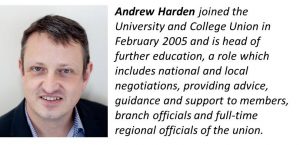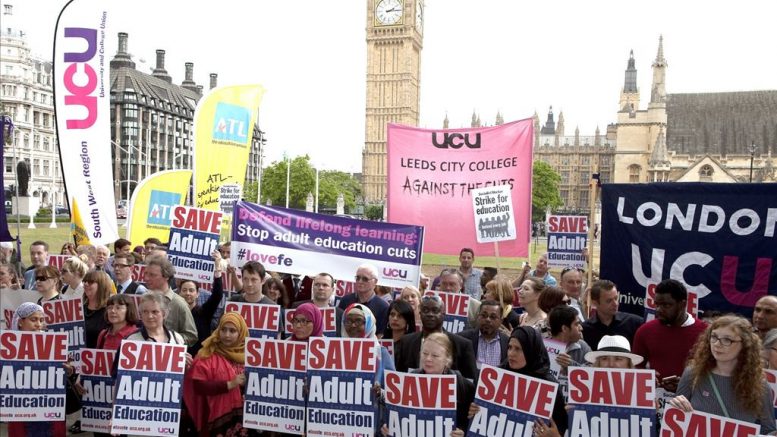On the steps of Number 10 in July, Theresa May outlined a desire to make Britain a country that works for everyone. She said that she wanted to tackle social injustice and help everyone go as far as their talents would take them.
If the Prime Minister needed further proof of how further education can deliver that she should take a look at the case studies in a new project from the University and College Union (UCU) which demonstrates the transformative power of education for people and their communities available at Transforming Lives and Communities.
Education is the closest thing we have to a silver bullet when it comes to social mobility. However, unless we have more than just warm words from ministers, our colleges will not be able to realise their potential or that of their students.
Significant investment is needed now. We cannot expect to turn on the tap in three years’ time and see the skilled workforce we need just flow
As the UK tries to work out exactly what Brexit means and how to thrive outside the European Union, the further education sector must demonstrate the crucial role it can play and the sector must argue for greater investment in order to create the necessary opportunities for people and the economy outside of the EU.
Further education has been classed as the Cinderella sector, sitting as it does between schools and universities, it has few political or journalist cheerleaders –not many have direct experience of it themselves, or even their children going through the system. However, it can play a vital role in developing our workforce and economy if ministers are prepared to support it.
Figures reveal that a million adult learners have been lost from the further education sector since 2009. During that time we have seen savage cuts to funding and an unsuccessful attempt to ape the worst of the university sector with loans for older learners. People who want to get on or need to retrain are finding it much harder today. This makes no sense, as outside of the EU, and the single market, the UK will need to grow its own skilled workforce like never before. This will only be possible with a very deliberate and strategic investment in further education.
The ability of the UK to attract inward investment outside of the single market will rely more than ever on the skills of its workforce. That significant investment is needed now. We cannot expect to turn on the tap in three years’ time and see the skilled workforce we need just flow.
Funding cuts and area reviews have sent a damaging message that this is a sector in decline. Teachers in colleges are paid 6.2 per cent less on average than their colleagues working in schools. Workloads have skyrocketed, and opportunities for professional development have diminished. We have seen an exodus of teaching talent from the sector. There are now 15,000 fewer people teaching in further education colleges than there were six years ago.
If the government wants to achieve its aim to help people get on in life, it needs to take a strategic approach to engaging with staff, reverse the decline in teacher numbers and make the sector an attractive place for people to work.
That means investing properly in supporting the recruitment and retention of teachers and support staff. To replace the 15,000 teaching staff we’ve lost and open up learning opportunities for at least 250,000 more students, UCU estimates that government needs to invest about £700 million.
That’s why the sector needs to work together to make the case for significant investment, and for a workforce strategy which helps ensure that further education teachers are valued and want to remain in their jobs.
We saw what the sector can do when it speaks with one voice. Last year’s #loveFE campaign, supported by sector organisations and trade unions across further education, helped to stave off anticipated cuts to 16-19-year-olds and adult learning funding in the November budget.
We now need to harness that same energy to make the case for investment to meet the country’s skills demands. No matter what Brexit really means, if the UK is to finds its feet outside the European Union, we must position further education and its transformative potential at the heart of this country’s skills strategy.
By Andrew Harden





